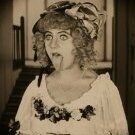All Activity
- Past hour
-

Luna's Book Log 2025
lunababymoonchild replied to lunababymoonchild's topic in Book Blogs - Discuss your reading!
Empire of the Vampire, Jay Kristoff This is the first book in a trilogy and at 725 pages is absolutely epic. It is also a different take on vampires. The story begins with a man, introduced as a murderer, who is being held against his will in a castle and is certain to die. His jailer, who claims to be a historian, has been sent by a superior to document the captive's life story. The purported reason for this is to discover what happened to the Holy Grail. It quickly becomes apparent that both characters are vampires, but of different kinds and on opposing sides. The prisoner is aligned with good, while the vampire historian is on the side of evil. As the narrative unfolds—told in a non-linear fashion—we learn about various types of vampires and the fate of the Holy Grail, more or less. The writing is excellent, and the characters are believable, provided you are open to the existence of vampires. The plotting is excellent. There is some swearing and profanity, but it doesn’t get in the way of the characters or the story, and there is also criticism of the Christian-like religion that those, like the prisoner, follow. If you like epic and long stories, if you like vampires, if you don’t mind swearing (which is in keeping with the story), and can take a little criticism of the Christian-like religion, this is for you. I loved it! Highly recommended. -
The Woman in Black (1983) Susan Hill A man in his fifties named Arthur Kipps is listening to ghost stories told by his step children. They ask him to participate but he is uncomfortable with the request and leaves the room. He then proceeds to explain that he had an experience in his youth which traumatised him and which he will write down. What follows is the story of Arthur as a young lawyer being asked to go north to a small village where he must settle the affairs of a recently deceased woman called Mrs Drablow. Her house is a creepy mansion by an estuary, endlessly covered in mist and damp, the sea fret drenching the walls and creating an isolated and spooky home. While attending the funeral of Mrs Drablow, he sees a woman, young but emaciated, wearing black. When he asks his colleague and others about her, people are uncomfortable and disturbed and refuse to speak. Eventually, Mr Kipps must spend a couple of nights at the house alone to better progress with his task of dealing with Mrs Drablow's affairs and papers. Well, it started well. It's nicely written and I was enjoying it but for goodness sake, this whole book is a lot of teasing. There comes a point where you just think... get on with it!! I don't know if this is the standard approach for ghost stories (endless atmosphere building and seeing/hearing things) but it became slightly dull for me after a while. It's nicely written but I felt like it was a VERY short story being deliberately dragged out. The book was, however, momentarily saved by the introduction of the dog, Spider, and I loved the fact that he wasn't alone in the house but had this adorable, scrappy companion alongside him to investigate the creepy noises. But as the suspense gathered and the ultimate conclusion came hurtling towards us, I was never that engaged or enthralled. Plus, it seemed (to me) that the ending was rather blatantly signposted. Hill makes the mistake of beginning the book with Arthur talking about his wife Esme, and the three children she has from a previous marriage. Then, when the real narrative kicks in, and we jump back in time to when he was a young man, we discover that he has a fiance called Stella. I mean, it seemed pretty obvious to me where this was going (or at least that this discrepancy would play a part... otherwise why include it?). It was just a question of when and how. But if you like this sort of thing, I would certainly recommend it. Personally, I found it slightly frustrating as it dragged the story out with chapter after chapter of yet more atmosphere building and intrigue. How much drizzle and fog and the sound of crying babies does a book need? I mean, it does a reasonable job in that regard but there comes a point where I wanted it to give me something more. Yes, very good atmosphere (reminiscent of Embers by Marai) with lots of mist and unsettled villagers giving you funny looks, but ultimately a very thin plot if you ask me. It may simply be that I'm not a fan of this genre. 6/10
-
Kokain Kaufen Deutschland joined the community
- Today
-
Tarquin sometime, he's known
- Yesterday
-
DawnJ joined the community
-
The Story of my Life George Sand George Sand was the name adopted by Aurore Dupin and this is her own account of her life (and some of her loves). She gives an account of her family history before her birth as well as her own history. This is her account of her birth: “My good aunt Lucie was on the eve of marriage with an officer who was a friend of my father, and they were all celebrating in the intimacy of the family. My mother was wearing a pretty dress the colour of roses. They were dancing a quadrille composed by my father, as he played on his faithful Cremona violin. . . . My mother, feeling a slight malaise, left the dance and went to her bedroom. Since she showed no signs of indisposition and had left so quietly, the dancing continued. My aunt Lucie, as it was ending, went to my mother's bedroom, and almost immediately she was heard to cry, "Come, come quickly, Maurice, you have a daughter!" "She shall be called Aurore," said my father, "after my poor, dear mother, who is not here to bless her, but who will someday!" And he took me in his arms. . . . "She was born to the sound of music and in the colour of roses," said my aunt. "She will know happiness.” In the edition I have there are also some of Sand’s letters, mostly to Alfred de Mussett (one of her lovers). There are also some extracts from a personal journal which consists of letters she didn’t send. Finally there is an extract from an account of a visit to Majorca with Chopin. This last extract is the part I enjoyed least as Sand is very scathing about the culture and peasantry of Majorca. Most of the book concerns Sand’s childhood and her relationship with two very strong women, her mother and her grandmother. These two did not get on most of the time and Sand was often caught between the two: she spent a good deal of her time with her grandmother. Sand remains discreet about her lovers, of whom there were quite a number and she moved in literary circles, spending time with most of the significant writers of the time. She is interesting in her own right. Often dressing as a male and adopting a male pseudonym in her writing and balancing that with motherhood. She is an interesting subject and this was worth reading. 7 and a half out of 10 Starting The Reason Why by Cecil Woodham-Smith
-
cadge a dime off
-
but make sure you
-

Never Ending Song Titles - Part 8
poppy replied to Kylie's topic in Quiz Room / Thread Games Jokes etc
It Should Have Been Me ~ Yvonne Fair - Last week
-
A. K. Gilbert joined the community
-
Never Ending Song Titles - Part 8
Madeleine replied to Kylie's topic in Quiz Room / Thread Games Jokes etc
I Should have known better - Jim Diamond -
Timothy Keenan joined the community
-

Never Ending Song Titles - Part 8
Nataweeee replied to Kylie's topic in Quiz Room / Thread Games Jokes etc
A Better World Is Possible - Thotcrime -

Never Ending Song Titles - Part 8
muggle not replied to Kylie's topic in Quiz Room / Thread Games Jokes etc
Nothing is Better - Sam McCabe -
Never Ending Song Titles - Part 8
Madeleine replied to Kylie's topic in Quiz Room / Thread Games Jokes etc
Even better than the real thing - U2 -
time for a lime,
-
deciding, we haven't got
-

Never Ending Song Titles - Part 8
poppy replied to Kylie's topic in Quiz Room / Thread Games Jokes etc
Nobody Does It Better ~ Carly Simon -

Never Ending Song Titles - Part 8
muggle not replied to Kylie's topic in Quiz Room / Thread Games Jokes etc
You Better Not Do That - Little Jimmie Dickens -

nat's reading diary <3 (2025)
Nataweeee replied to Nataweeee's topic in Book Blogs - Discuss your reading!
#24. Magica Riot (Kate Buchanan, 2024) Another night-shift audiobook and wow this is some shameless wish fulfillment slop and the fact that its wish fulfillment I get and could (at least at a point in my life) relate to makes it both more endearing and also more transparent. Like, I was smiling and cringing in equal amounts lol but to be fair I did smile quite a bit, especially in the first half before it has to start focusing on the plot more heavily. The mahou shoujo girl band thing its got going on is a fun enough premise and the narrator performed it with an infectious amount of enthusiasm so it was a pretty good time even if the action sequences aren't particularly riveting and the story is extremely safe and by the numbers. Definitely would have rolled my eyes at it a lot more if I was spending my free time reading it as opposed to passively listening to it while at work. 6/10 -
The Best First Books for Babies and Toddlers
KEV67 replied to Hayley's topic in Children's / Young Adult
I tried reading the page without showing it and he still walked across the room. He definitely remembers the words. Maybe he does not understand what they all mean, but he remembers them. In another Sue Hendra / Paul Linnet book, Nobot the Robot with no Bottom, there was a page in which Bear says he could not use Bernard the robot's bottom in his drum kit, because it made a funny noise. I used to look at Adrian and say, 'Does your bottom make a funny noise?' First, he laughed, which made me wonder how much he understood. Lately, he looks at me at me in a funny way when we get to that page. So far, the best clues I have of Adrian understanding any language is his sense of humour. I have been resisting buying any of the Supertato books by Hendra and Linnet. But since I am having difficulty getting Adrian to eat any fruit and vegetables, I bought one. -

The Best First Books for Babies and Toddlers
Hayley replied to Hayley's topic in Children's / Young Adult
Thank you That does sound like a fun book. Maybe you could try telling the story (or a story, if it's too long to remember) without the book, to see if Adrian still reacts when you say the word 'tickling'? There's certainly nothing wrong with his memory anyway, even if he's learned what comes next from the pictures -
Farewell, Earth's Bliss (1966) D. G Compton I often say that my guilty pleasure in literature is post-apocalyptic fiction (and it is) but I've been trying to expand my general sci-fi consumption lately albeit with the desire that the books should explore something existential or something philosophical (I'm not that interested in aliens and sweeping space operas). So yeah, something small but intriguing, and this writer's name came my way. It was probably a very good choice because the book does not dwell on epic sci-fi themes and instead tells a rather straight-forward and small story of hardship. The book opens with several characters (I think 22) aboard a space ship heading for Mars. These people are convicts being sent to a penal colony settlement they know very little about. They are given biblical names (Jacob, Simon, Mark, Rachel etc) and consume drugged food for the nine week trip to better cope with almost no physical activity. Once they arrive, they are immediately caught in a storm that kills several of them (I did not entirely like this chapter because Compton jumps ahead in time rather abruptly) before the locals arrive to take them to the settlement. Here they discover that it is a self-maintained colony where the criminals (some of their crimes are severe but others are trivial) have created their own small but workable civilisation. Life is very hard and everyone is expected to contribute, pull their weight, or face severe punishment. And that's basically it, that's as far as the sci-fi elements of the story ever goes. But that's the point because, to me at least, this is a novel where Compton is exploring hardship and its beneficial consequences to the human soul. When you remove comfort and freedom, this often (counter intuitively) results in a society that is mentally healthy, robust, deeply satisfied, and ultimately very strong. It feels wrong to acknowledge it, given the hardships involved, but many (often the ones you least expect) take to this new life and thrive while others cannot handle it. The book has a bleak, even cynical take on the human condition. Racism, sexism, homophobia, all present and correct, but the fundamental philosophy of this place and its people is... if you work hard and contribute, you will be rewarded. But obviously this is not always the case. Some people will simply die because of the conditions, because that too is the nature of this kind of life. I really enjoyed this (especially the early chapters) and thought Compton's writing was very fun to read. The book is science fiction in only the most tangential way, its ideas more in line with an existentialist exploration of a life at its more authentic, its most demanding. It's a difficult narrative to sell because it goes against our instincts. Nothing is quite so satisfying as a delicious meal and some good hearty sexual intercourse after a twelve hour day of intense labour and toil. Yet, equally, nothing is quite so bleak. Very interesting. Very good. 6/10
-

Your Book Activity 2025
lunababymoonchild replied to lunababymoonchild's topic in Book Blogs - Discuss your reading!
Just ordered Heartbeats, the autobiography of Bjorn Borg. A childhood hero of mine, I’m very much looking forward to reading it. -
Never Ending Song Titles - Part 8
Madeleine replied to Kylie's topic in Quiz Room / Thread Games Jokes etc
Falling into You - Celine Dion -

Never Ending Song Titles - Part 8
muggle not replied to Kylie's topic in Quiz Room / Thread Games Jokes etc
Listen to the Rhythm of the Falling Rain -Cascades -
Oolong, don't take long...
-
Never Ending Song Titles - Part 8
Madeleine replied to Kylie's topic in Quiz Room / Thread Games Jokes etc
I can't stand the Rain - Eruption -
things like, 'Chamomile or



